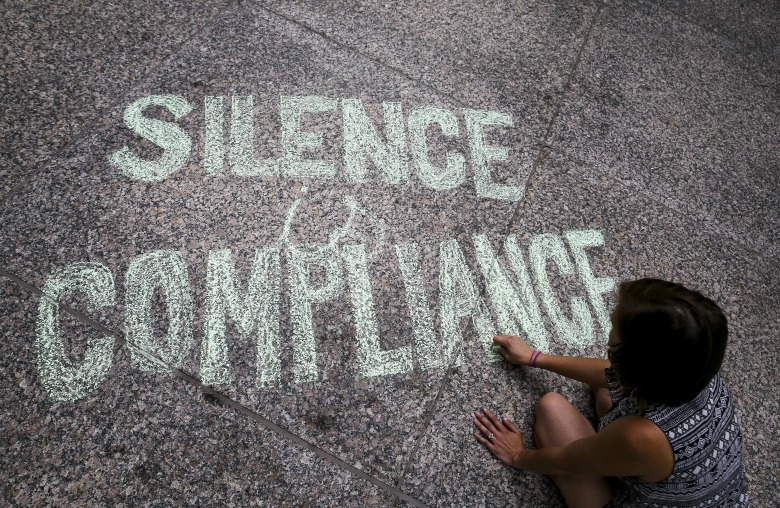
(Getty/ Anadolu Agency)
The hatred exhibited by an array of white supremacists this past weekend in Charlottesville, Virginia, horrified much of the nation. The frenzied scenes of livid white men (and scattered white women) wearing Nazi or Confederate regalia and wielding fiery torches on the grounds of the University of Virginia, then of militia members brandishing machine guns in and around Emancipation Park, were appalling in their overt threats of violence. The grey car speeding purposefully into pedestrians, killing 32-year-old Heather Heyer and wounding at least nineteen other counter-protesters in a terrorist attack, seemed to epitomize the murderous desires in the hearts of those protesting the imminent removal of the Robert E. Lee statue erected in the Jim Crow era. The chanting of “Jew will not replace us” and “Black lives don’t matter!” and the mocking of Heyer in neo-Nazi media after her death were but some of the signs showing that the dream of these misogynist racists was death to persons threatening white male authoritarianism.
In the wake of these terrible events, many have rightly noted that white people who oppose racist ideology must stand up forcefully against it with their words, their actions, and their votes. To be silent or to engage in false equivalencies (much as our own president did) is to be complicit in the growth of this noxious fascism. The fantasies entertained by those who congregated for whiteness in Charlottesville should have no room to grow in twenty-first-century America.
Christians especially must take serious stock of the way their tradition has contributed to the conditions nurturing white nationalism. Despite all that the Bible has to say about loving and serving others and resisting any urge to think of oneself as better than others, the Anglo-American colonizers and missionaries who came to these shores centuries ago nurtured a self-perception as God’s chosen people, set above and apart from Native Americans and other peoples of the world. American slavery furthered this ideology, steeping white people (those who both did and did not own slaves) in presumptions of their own God-given superiority over African Americans. Whole systems of scriptural interpretation were created to support this belief, theologies of segregationism that long outlasted slavery itself, falsely depicting the rule of white people over black people and others as the natural, God-created order. Too many white Christians continue to think this way, perhaps including some of those “court evangelicals” who hungrily seek influence in the White House and were mostly silent in the wake of this weekend’s violence.
In 2017, the church remains one of the most segregated spaces in the United States, a fact that ineluctably reinforces the blind spot many whites have when it comes to race. Think how different our national conversation about racism and racial justice might be if greater numbers of white people worshiped and socialized regularly with African Americans and got to know them in more deeply personal ways. That is unlikely to happen any time soon, but Christian leaders can confront and speak against what David Gushee most recently termed “white Christian supremacism”: a “hateful ideology … fundamentally contrary to Christian values” but that “remains in our bloodstream for periodic resurgence.” There is no doubt that such a resurgence played an enormous role in the 2016 presidential election and that it is one of the most destructive forces of our time, a species of so-called Christian thinking that goes squarely against the Jesus of the gospels.
Some clergy are already in the trenches, spreading a message of love and justice that refuses to countenance racism; many of these leaders were present and visible in Charlottesville this weekend or have been active at previous anti-racism rallies. Others, like the Southern Baptist Russell Moore, are speaking out more forcefully than many of their co-denominationalists. Perhaps the violence in Charlottesville will finally motivate more white Christians, and white Americans more generally, to fight the scourge of racism as the nation-destroying disease it is.
Marie Griffith is the director of the John C. Danforth Center on Religion and Politics and the editor of Religion & Politics. She graduated from the University of Virginia. Her new book, Moral Combat: How Sex Divided American Christians and Fractured American Politics, will be out in December. Follow her @RMarieGriffith.